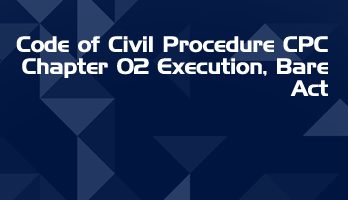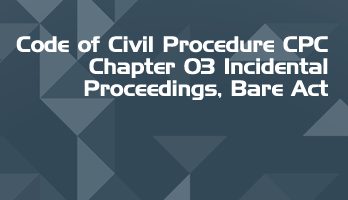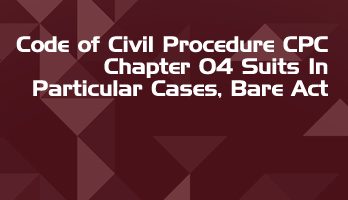A 'Bare act' is the actual legislation passed by the Parliament of India. Generally, an act sets out the high level legal and policy principles applicable to the subject matter of the law.
Most acts are accompanied by 'subsidiary legislation' such as rules, regulations, notifications and orders; which address the actual implementation detail of the act.
Free Full Course Available on LawMint's YouTube Channel
How to Land Your Dream LLB Internship in a Top Law Firm
- Part 1 - Introduction
- Part 2 - Internship Planning
- Part 3 - Internship Research
- Part 4 - Building Your Profile
- Part 5 - The Email
- Part 6 - The Resume
- Part 7 - The Cover Letter
- Part 8 - The Interview
- Part 9 - Self Development
Practical and comprehensive course, with real examples and step-by-step analysis of the complete internship application process. Check out LawMint's YouTube channel now!
Indian Divorce Act, 1869
Chapter VI – Protection – Orders
Section 27 – Deserted wife may apply to Court for protection
Any wife to whom section 4 of the Indian Succession Act, 18651* (10 of 1865), does not apply, may, when deserted by her husband, present a Petition to the District Court or the High Court, at any time after such desertion, for an order to protect any property which she may have acquired or may acquire, and any property of which she may have become possessed or may become possessed after such desertion, against her husband or his creditors, or any person claiming under him.
Section 28 – Court may grant protection – order
The Court, if satisfied of the fact of such desertion. and that the same was without reasonable excuse, and that the wife is maintaining herself by her own industry or property, may make and give to the wife an order protecting her earnings and other property from her husband and all creditors and persons claiming under him. Every such order shall state the time at which the desertion commenced, and shall, as regards all persons dealing with the wife in reliance thereon, be conclusive as to such time.
Section 29 – Discharge of variation of orders
The husband or any creditor of, or person claiming under him, may apply to the Court by which such order was made for the discharge or variation thereof, and the Court, if the desertion has ceased, or if for any other reason it thinks fit so to do, may discharge or vary the order accordingly.
Section 30 – Liability of husband seizing wife’s property after notice of order
If the husband, or any creditor of, or person claiming under, the husband, seizes or continues to hold any property of the wife after notice of any such order, he shall be liable, at the suit of the wife (which she is hereby empowered to bring), to return or deliver to her the specific property, and also to pay her a sum equal to double its value.
Section 31 – Wife’s legal position during continuance of order
So long as any such order of protection remains in force, the wife shall be and be deemed to have been, during such desertion of her, in the like position in all respects, with regard to property and contracts and suing and being sued, as she would be under this Act if she obtained a decree of judicial separation.
Important Central Acts in Regional Languages
Legislative department website also features regional language versions of several important Central Acts.
Free Full Course Available on LawMint's YouTube Channel
How to Land Your Dream LLB Internship in a Top Law Firm
- Part 1 - Introduction
- Part 2 - Internship Planning
- Part 3 - Internship Research
- Part 4 - Building Your Profile
- Part 5 - The Email
- Part 6 - The Resume
- Part 7 - The Cover Letter
- Part 8 - The Interview
- Part 9 - Self Development
Practical and comprehensive course, with real examples and step-by-step analysis of the complete internship application process. Check out LawMint's YouTube channel now!












